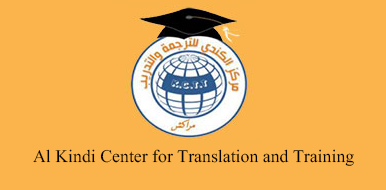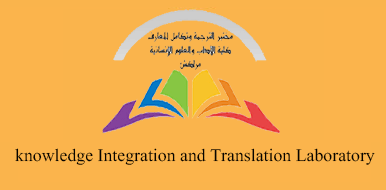Maqasid (Purposeful) Interpretation and the Science of the Purposes of the Glorious Book. By Dr. Ismail Al-Hassani
Dr. Al-Hassani has made a preliminary presentation on the importance of the Holy Book, its various angles and diverse sciences, which has been a miracle in all its aspects. He then made it clear that the science of purposes is a broad and comprehensive subject; it is not just about rules and adjudication, it engrosses all the sciences of the glorious Quran ranging from news and events of the Qassas (stories), invocations and prayers and other subjects that Allah Almighty has dealt with. The science of purposes is not a concern for the novice scholars but for the well-established ones, such as Imam Taher bin Ashour and Abu Ishaq al-Shatbi, who says in his book Muwāfaqāt: and If it is so, the one seeking to learn the faculties of sharia, and the one eager to succeed in the realization of its purposes and to catch up with its specialists, has to befriend The science of purposes and study it day and night through the days and to focus on both theory and practice. And it`s only then that he would acquire the eloquence and necessary knowledge to find himself with the pillars of this science. The purposes of the Holy Quran are two categories: a) the purposes of the discourse, which are the intended meanings of the utterances of the Holy Quran and the connotations that the lawgiver means by his utterances. b) The purposes of the adjudication: The Holy Quran has descended according to occasions of revelation, i.e. on the grounds of specific circumstances, and the context of the Quranic discourse. Such as the linguistic context of the discourse, and the occasional situation which carries a number of external circumstances and events in which the Qur’anic discourse was revealed. For scholars, the purposes are interests formulated by God in his discourse, and this discourse implies intended and unintended meanings as the Qur’an is characterized by the property of probability. The adjudication should be based on reasoning, it has to be an intended meaning from the discourse and the scholar specialized in the science of purposes should consider people`s interest, not according to the human discourse that has various inferences and interpretations, but according to Allah`s divine purposes and intentions. Hence, it is so important to take care of the purposes of Allah Almighty because people have turned to the pragmatic dimension and overlooked the semantic dimension of the Shariah. The adjudications of the purposes of the Holy Quran are the intended aims behind the legislation of the Holy Quran. The difference between the purposes of the discourse and the purposes of the adjudications is based on the nature of each of them separately; the purposes behind the lawgivers` adjudications are purely discursive. We also find that the purposes of the scientific allegations depend on the requirements of principles, techniques and concepts. While the science of purposes in the Qur’an is based on the principle of benefiting by linking it to social conditions and circumstances. The purposes of the Quran`s adjudications are values that draw from the Qur’anic desired values. The purposes of the Holy Quran can be defined in the meaning of the Qur’anic discourse reached by evoking the situation (in which the discourse is contextualized) and the intended pragmatic goals behind its legislation which are reached through a scientific effort. The pragmatic goals vary from the cognitive point of view; they are sometimes partial and address each Qur’anic adjudication separately. At other times, they are concerned with one specific religious area that the Quran has dealt with such as acts of worship or people’s behavior and conduct. And the third time is general for all the Holy Quran. The main issue in the purposeful (Maqasid) interpretation is the benefit that should be consistent with the interests of the Holy Quran. The issue of purposes is a matter of jurisprudence not of taste and it depends on the occasion. Exegetes’ writings emphasize that the talk about the occasion is a discretionary one, it also requires the context in which the Qur’anic verse is revealed, and this context is of two types: situational or contextual. As an example of the situational context, is found in Orwa’s Hadith when he said: “I said to Aisha, the wife of the Prophet, (peace be upon him) I don’t see any harm for those who don’t circumambulate between Safa and Marwa and I don’t really care about circumambulation, she said wretched is what you have just said my nephew, the prophet of Allah, peace be upon him circumambulated and so did the Muslims, and then it became a Sunnah, but it was the people of `Manat` in `Mashlal`, before the dawn of the Islam, who didn’t circumambulate between Safa and Marwa; and in Islam era, we asked the Prophet, peace be upon him about that and Allah revealed the verse:{ Hence,] behold, As-Safa and Al-Marwah are among the symbols set up by God; and thus, no wrong does he who, having come to the Temple on pilgrimage or on a pious visit, strides to and fro between these two. } (The cow .158) if it is as you say, it would not be compulsory to circumambulate around them “Aisha, God bless her witnessed the context and the occasion of revelation. In this case, the situational context helps understand that the early Muslims were addressed first and then all Muslims at all time. We may ask: 1- Is the meaning of the discourse here _specific to circumambulation _or it includes circumambulation and other types of righteousness and good deeds? 2- Does it concern those who were present at the time of the incident or those who were not present or both? So the purpose is: – To urge the circumambulation between Safa and Al-Marwa; – To clear the embarrassment of circumambulators denotes the mercy and ease of the Qur`anic adjudications, and – To prove wrong the polytheists who considered Safa and al-Marwa as the rituals of God; and intention here is to change their habits and traditions in a soft manner. In order to determine the purpose of a verse, it is necessary to adopt the occasion of revelation of the verse, the contextual situation of the verse, and the presentation of the different understandings of the meaning of the verse, to induce that the purposeful interpreting is the interpretation that aims at achieving the purposes of the holy Quran by relying on the three constructing standards: a) the index of degree of knowledge that the interpreter has about the occasion of revelation of the verse; b) the index of knowing the contextual situation of the verse; and c) the type of effort invested in extracting the judgments from the verse with the purposeful intention. The purposeful (Maqaseed) also depends on three requirements: principles / techniques / concepts. He concluded that the knowledge of purposes is not taste-related but rather empirical and governed by scientific criteria as previously mentioned. The purposeful interpretation is the kind of interpretation which aims at achieving the purposes of the Quranic verses whether from their discourses, or their adjudications. The legitimacy of this or that purpose is based on three criteria: The first is the interpreter’s keenness to identify the aspects of the occasions between the Qur’anic verses, second is his understanding of the situations in which the verses are contextualized so that he can use them to define the Qur’anic purposes; and the third one is the kind of effort invested to explain the intentional interests of its adjudications. For The knowledge of the purposes of the glorious book to be empirical and to fit the description on science it must be based on three systematic and pivot requirements: principles, techniques and concepts. If the care for the purposes reached this point, its benefit and service is exploited in interpreting, understanding and translating the holy Quran. But with the many purposes the translator is in a confusing position because he conveys only one aspect of the many aspect and understandings of the text which are linked to different contexts. The science of purposes laid the foundation for various sciences which have been always its nucleus. The purposes are either legitimate purposes, social or natural ones. When the interpreter reaches the intention of the lawgiver`s discourse, then he could communicate it and translate it into several languages.

